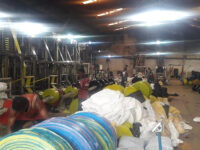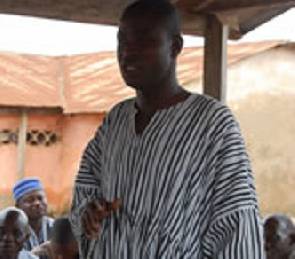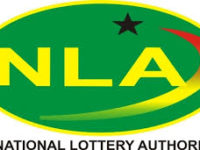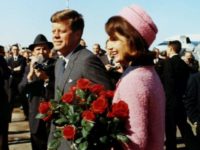 A senior Lecturer at the Department of Economics of the University of Ghana, Dr Albert D.A. Laryea, has called on policy-makers to ensure that the exchange rate of the cedi is not undervalued or overvalued against major trading currencies.
A senior Lecturer at the Department of Economics of the University of Ghana, Dr Albert D.A. Laryea, has called on policy-makers to ensure that the exchange rate of the cedi is not undervalued or overvalued against major trading currencies.
He said the surest way to stimulate and sustain economic growth was to ensure that the exchange rate was pegged at a balanced level, and cautioned that any imbalance would affect national growth negatively.
He said the role played by the exchange rate regime had a direct effect on the economy, and that an undervalued exchange rate made imports expensive and could result in balance of payment surpluses which affected money supply.
Dr Laryea made the call at a roundtable conference on national economic growth organised by the Institute of Economic Affairs (IEA) in Accra yesterday.
It had the theme: “Factors Affecting Economic Growth in Ghana: Policy Implications.”
Making his presentation on the topic “Exchange rate misalignment and economic growth in Ghana,” Dr Laryea said on the other hand, an overvalued exchange rate made the economy less competitive and also penalised exports.
He, therefore, stressed that it was crucial to keep the exchange rate balanced as much as possible since that ensured sustained growth and development.
“It is very important for policymakers to be conscious of the real exchange rate and the necessity for not allowing it to stray too far from the equilibrium,” he advised.
Ghana’s readiness for EPA
A visiting Senior Fellow at the IEA, Professor John Asafu-Adjaye, who also made a presentation on the topic “Will the EU’s Economic Partnership Agreement (EPA) be Growth and Trade Enhancing”, said Ghana could not continue enjoying preferential trade agreements indefinitely.
The world, he said, was moving towards trade liberalisation and so it was incumbent on the country to structure its economy, taking those realities into account.
Prof. Asafu-Adjaye expressed concern about the high tariff barriers among trading partners in the ECOWAS sub-region and advised that trade liberalisation with the European Union (EU) ought to be preceded by liberalisation within the ECOWAS sub-region.
He also talked about the need, to negotiate market access for industries that would create jobs to enhance the competitiveness of local industries and address infrastructural constraints.
But as things stand currently, he stated, Ghana was not ready to make good use of the EPA, saying that “we are not ready to implement the EPA.”
The Director of Research at the IEA, Dr Charles Jebuni, in his opening remarks, said that growth was the most effective means of eradicating poverty and bringing about transformation.
Unfortunately, in Ghana, he said “we don’t have a transformation policy based on outward orientation” which should guide the exchange rate.
Open forum
During an open forum, the Executive Chairman of New Capital Holdings Limited, Dr Prosper Adabla, said the current exchange rate situation should compel the country to produce and export more.
He noted, however, that because of the country’s over-reliance on imports, there was the tendency to expend more foreign currency which was not beneficial to the economy.
The President of the Ghana National Chamber of Commerce and Industry (GNCCI), Mr Seth Adjei Baah, said the signing of the EPA was regrettable because the country lacked the structures needed to benefit from that arrangement.
The Vice-Presidential candidate of the Progressive People’s Party (PPP) in the 2012 elections, Madam Eva Lokko, said the EPA would not benefit Ghana because the EU was controlling all the parameters.
She advised that if there was any out-clause in the agreement, the country must make use of it and get out of the EPA.





